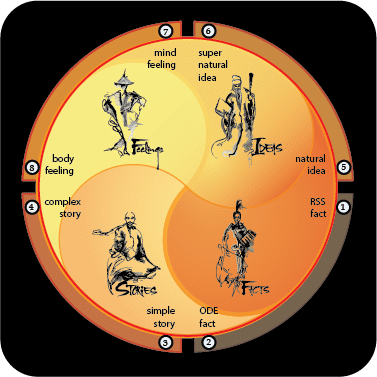Why is Sigmund Freud Considered Great When Most of His Theories Have Been Disproved?
I’m always amazed by how people who have never contributed in any way to a profession can feel entitled to claim other peoples’ work in this profession is right or wrong. What I mean is, like Jung, Adler, and Janet, Freud was a rare bird. He was a full-blown personality theorist AND at the same time, a practicing therapist for most of his life.
Most people never notice this difference, let alone consider what it means. Think about it. Freud didn’t practice a “modality” based on someone else’s theories. He invented theories and therapies and made his living using and teaching them. More important, neither could contradict the other. They had to complement each other, else he’d need to admit he was wrong.
What I’m saying is, Freud’s personality theories had to enrich and expand his therapies. At the same time, these therapies had to work in his therapy room. His therapies then had to simultaneously enrich and validate his theories. Thus in this way, Freud’s theories and therapies had to form a feedback loop.
This differs markedly from the way most modern therapists are taught to practice. The practices of most modern therapists are what I refer to as “single ended practices.” What they do in their therapy rooms is an extension of someone else’s theories. And nothing they do changes, let alone refines, those theories.
Are you getting this? Everything Freud did had to pass the ultimate test. Not only did it have to be teachable. It also had to change a life.
Moreover, no one who risks so much can claim to get everything right. Only people who base their practices on other people’s work get to blame the errors on someone else. But when these things do work, they get to take credit.
How about some specifics which reveal what kind of a man Freud was? In 1923, when he was 67, he got diagnosed with cancer of the soft palate. Over the next sixteen years, he suffered through 23 operations. And finally, at age 83, he died.
What’s important to see here is what he did with this suffering. He used his suffering to add to this theories, positing Thanatos (the death instinct.) To me, the mark of a successful life is to have gained from your suffering. Someone who enriches the world through their suffering is beyond successful.
Then there is the relationship Freud had with his daughter, Anna. At a time when few women were allowed to publicly have an opinion, she in no small way, extended her father’s work. Those defense mechanisms all therapists have to study? The basics came from her work. So here we see a man who is commonly seen as a sexist ass, who in truth supported and encouraged his daughter to be all she would be.
At that time in history, this was no small thing.
I for one admire him for this.
Then there is the thing which occurred between him and van Eeden. Van Eeden is the originator of Lucid Dreaming. The following is from my first book, published in 2010.
For instance, I, for years, thought Freud a cold and arrogant prick. Then one day I realized I should at least try to read the prick in his own words. At which point, I naively drove to a bookstore thinking I’d just buy one of his books, never realizing my entire understanding would rest on the skill of the translator I chose. Freud wrote in German. I do not read German. Duh. Imagine my surprise then when I compared translations to see which would be most readable only to discover, to my dismay, that these translations often differed so greatly as to make Freud’s intent unknowable. They literally make Freud’s words appear to have been authored by different people. Which in truth, they were. It had just never occurred to me the degree to which these “auxiliary” authors can unintentionally obfuscate a source.
In the end, I fell in love with yet another man who risked all to put in writing his personal truth. More so when I later read a letter Freud wrote to a man who had originally been one of his greatest detractors, Fredrik Willem van Eeden, the originator of Lucid Dreaming. In this letter, Freud admits to van Eeden that he had based his book, Interpretation of Dreams, on his own life experiences. After which it seems van Eeden warmed to Freud, perhaps much like we warm to similarly brave souls.
Please, disagree if you must, with the things Freud theorized and practiced. But do offer specifics, not just ad hominum attacks. It’s easy to say someone is wrong, quite another to offer proof. And proof which makes the world a better place? Even rarer.
Finally, for those who do not know what drove Freud to do what he did, consider this. Freud was born in 1856, and grew up in a world falling in love with discovering the laws of physics. I’ve read he was driven by a desire to discover similar laws in the mind. Talk about an integrated approach to science.
On a personal note, I’ve inherited this same drive and have based everything I do on it. Hence my books on personality, on the mind, on scientific method/math, and on therapy; everything I’ve written parallels the laws of physics [e.g. the feedback loop I mentioned above]. Also, as part of my therapy, like Freud, I teach these things to my patients. To his patients, Freud’s Id, ego, and superego became the “it,” the “me,” and the “about me.” To mine, people are “mind first” or “body first.
